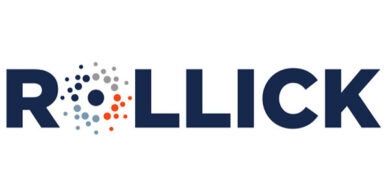Ethanol-blended fuel remains key issue for the OPE industry
OPEI provides updates on legislative activity, educational initiatives
By Kris Kiser, president and CEO, Outdoor Power Equipment Institute
The Outdoor Power Equipment Institute (OPEI) continues to work on policy and educational initiatives to address the entry of mid-level ethanol blends, E15 or otherwise, into the U.S. general fuel supply. Our members and industry remain concerned about misfueling of outdoor power equipment and other products, which can result in product damage and potential safety issues. Here is an update on legislative issues and activities.
Will EPA announce new blending requirements for ethanol this year?
On April 10, the Environmental Protection Agency (EPA) announced a proposed settlement with the American Petroleum Institute and the American Fuel and Petrochemical Manufacturers over deadlines for issuing annual requirements under the Renewable Fuel Standard (RFS) program. Under the proposed consent decree, EPA would issue final annual volume standards for 2014 and 2015 by the end of this year. Although not required by the consent decree, EPA will also finalize the standards for 2016 in 2015.
The proposed consent decree does not address the content or substance of the volume standards, and it establishes the following schedule:
* By June 1, the agency will propose volume requirements for 2015;
* By November 30, EPA will finalize volume requirements for 2014 and 2015 and resolve a pending waiver petition for 2014.
EPA also announced the following:
* EPA will propose and finalize the RFS standards for 2016 on the same timeline (proposal by June 1, final by November 30);
* EPA will propose and finalize the RFS biomass-based diesel volume requirement for 2017 on the same schedule; and
* The agency will re-propose volume requirements for 2014 that reflect the volumes of renewable fuel that were actually used in 2014.
What’s happening on Capitol Hill with RFS reform?
On February 26, Senator Pat Toomey (R-PA) proposed S. 577, Corn Ethanol Mandate Elimination Act of 2015, which would remove the explicit mandate for the use of corn ethanol. The bill would not invalidate the E15 partial waiver, or restrict the EPA waiver authority for the addition of new mid-level fuel blends. The general impetus for this bill stems from concerns over diverting food resources to energy, food prices, and land-use issues. Co-sponsors include Senators Dianne Feinstein (D-CA), Susan Collins (R-ME) and Jeff Flake (R-AZ).
On February 4, Representative Bob Goodlatte (R-VA) introduced H.R. 704, RFS Reform Act of 2015, which would focus on rescinding EPA waiver authority to introduce new mid-level blends, and would also repeal the existing partial-waiver for E15, capping ethanol blends at E10. The bill has 46 co-sponsors, with bipartisan support, and is identical to the legislation introduced during the last Congress.
Goodlatte also reintroduced on February 4 the H.R. 703, Renewable Fuel Standard Elimination Act, with 57 co-sponsors. This legislation would fully repeal the RFS.
On January 21, Representative Michael Burgess (R-TX), introduced H.R. 434, Leave Ethanol Volumes at Existing Level Act. The bill would repeal the E15 waivers, rescind EPA’s authority to issue additional ethanol volume waivers, and effectively cap ethanol mid-level blends at E10.
On January 7, Representative James Sensenbrenner (R-WI) introduced H.R. 21 with nine co-sponsors. The act provides for a comprehensive assessment of the scientific and technical research on the implications of the use of mid-level ethanol blends. This legislation would roll back the E15 waivers, as well as rescind EPA authority to issue new ethanol waivers until a federally funded study is completed and reviewed, assessing the effects of ethanol on engines.
Will legislative change really happen in Washington this year?
You may see a lot of angst related to ethanol-blended fuels online — including political advertising, industry groups talking about visiting Capitol Hill, and digital advocates trading barbs. All of this saber-rattling might make you think change is imminent, but we don’t think change is likely this year for a variety of reasons.
This is a regional debate more than a partisan one. RFS legislation has a short-term window of opportunity this year. That window will close quickly this fall as the presidential race for 2016 heats up. The issue remains highly complicated due to the flaws in the RFS, and the combination of market forces and stakeholders — which gives us little optimism for success of reform legislation.
I heard Chicago is discussing selling E15. What is happening with that?
Chicago’s city council has suspended consideration of a proposed ordinance to mandate the installation of infrastructure for the pumping of E15 at select Chicago filling stations. We continue to monitor the situation.
What is going on at a state level legislatively?
Many states introduced fuel legislation early in this year’s first term, including Illinois, Vermont and Hawaii. There are resolutions calling for federal action, state tax incentives, grants, restrictions and bans.
What can our industry do now?
One of the best things we can all do is educate consumers on proper fueling. Consumers may not realize that the fuel they put in their cars, especially those designed for higher ethanol blends, may not be safe for their outdoor power equipment, small engines, snowmobiles and boats.
It is imperative is that we continue to educate people about ethanol blends and proper fueling. Our Look Before You Pump campaign (www.lookbeforeyoupump.com) provides a variety of tools that you can use to better inform and educate consumers about proper fueling. OPEI’s web portal offers a public relations toolkit and free downloadable items for the campaign at www.TinyURL.com/EthanolEducation.
Kris Kiser is the president and CEO of the Outdoor Power Equipment Institute (OPEI), which is an international trade association representing more than 100 small-engine, utility vehicle and outdoor power equipment manufacturers and suppliers of consumer and commercial outdoor power equipment. Learn more about OPEI at www.opei.org.
How you can get involved in OPEI’s Look Before You Pump campaign
* Follow the campaign through social media. Follow and re-tweet hashtag #LookB4UPump and “like” the OPEI Facebook page (https://www.facebook.com/pages/Outdoor-Power-Equipment-Institute/179449385434673).
* Distribute an article or information about the campaign through your website, blog or social media channels. Share information about the campaign and its emblematic artwork through your website, blog, Facebook page, or Twitter feed. Link to the videos and information, so consumers can learn about proper fueling. You can download a public relations toolkit with templates at the web portal: www.TinyURL.com/EthanolEducation.
* Print ‘Look Before You Pump’ signage for use in your store or showroom. You can download a free copy of the campaign items online at the web portal. You also can order hang-tags for equipment, window cling stickers and more at www.TinyURL.com/EthanolEducation.
* Use campaign fact sheets to educate staff and consumers. Make sure your staff members are up to speed on the fuel choices in the marketplace today, so they can counsel customers on what fuels can be used in their outdoor power equipment.




